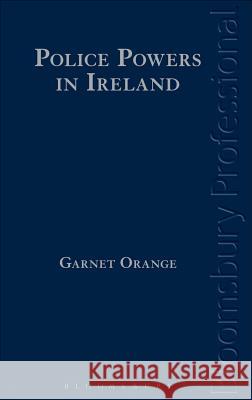Police Powers in Ireland » książka
Police Powers in Ireland
ISBN-13: 9781780434773 / Angielski / Twarda / 2014 / 496 str.
This book covers everything a legal practitioner needs to know about police powers in Ireland. There is no closer tie to criminal law than the powers of the police in the country. The book is a practical guide and includes cases not cited elsewhere. It starts with the history of Ireland's police force, their duties, and their powers. Then, the book details the importance of human rights (liberty, property rights, privacy, right to silence, rights of detained persons, etc.), the interpretation of legislation regarding police powers and the limitation of those powers, the relationship between the police and the public, and arrest and detention. The following key areas are covered: judges' rules * the questioning of suspects * adverse inference (i.e. when people fail to answer questions) * police powers to enter property and powers to search that property * stop and search of vehicles * observation, surveillance, and phone-tapping * evidence (seizure and retention) * forensic evidence * visual ID (parades, videos, photos, etc.) * entrapment * trial and remedies (civil proceedings) * Garda Ombudsman. The book also includes the following consolidated Irish legislation: Criminal Justice Act, 1984 (and other Acts relating to arrestable offenses and relevant offenses) * Offenses Against the State 1939 to 1998 (scheduled offenses) * Misuse of Drugs Act 1977 and Criminal Justice (Drug Trafficking Offenses) Act 1996 * Criminal Justice Act 2007.











